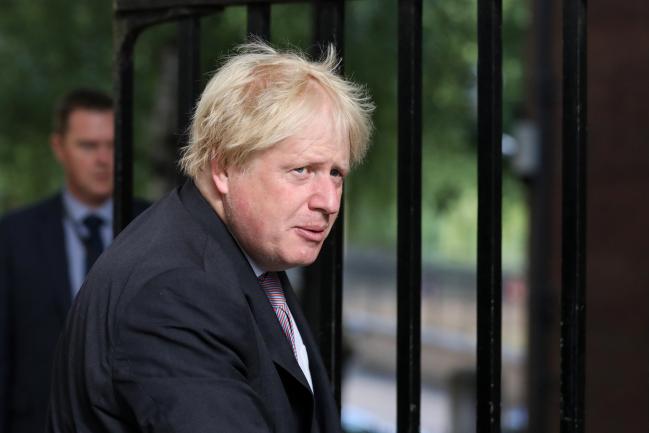(Bloomberg) -- A record 10 British Conservatives will fight each other for the chance to lead their party and the country after the race to become the next prime minister formally opened.
Candidates including the favorite, Boris Johnson, and his highest profile rivals, Environment Secretary Michael Gove and Foreign Secretary Jeremy Hunt, made it safely onto the ballot paper when nominations were announced.
All the candidates agree that Britain has to leave the European Union. But when it comes to how exactly to resolve the Brexit crisis that brought down Theresa May, there are few specifics.
The list of 10 is the largest field of contenders in a Tory contest since the party first began electing leaders in 1965. Over the next two weeks, 300 Tory politicians will narrow down the field to two. Then 160,000 party members will vote by post for the next leader. The result is expected in the week of July 22.
On the first formal day of the contest, five of the candidates formally launched their campaigns.
‘Profound Seriousness’
Johnson meanwhile used his weekly column in the Telegraph newspaper to propose a tax cut for higher earners, a move that reflects the preferences of Conservative Party members of Parliament and activists. He then followed his practice of keeping a low profile -- he has yet to make a speech or take a public question from a journalist. That left the day open for others to attack him and his plans.
Most of the attacks were coded. Pensions Secretary Amber Rudd, introducing Hunt, said Britain faced “a moment of profound seriousness.” Hunt followed that message up: “A serious moment calls for a serious leader.”
At his campaign launch Health Secretary Matt Hancock rejected the idea that the party needed “a famous face,” saying instead that “after all the bitterness and rancor of the past few years, we’ve got to move forward.”
And Dominic Raab, who has seen pro-Brexit MPs whose support he might have hoped for going to Johnson instead commented: “We won’t get Brexit delivered with bluff and bluster.”
‘Art of Empty Rhetoric’
Gove was a little more explicit. “One thing I will never do as prime minister is to use our tax and benefits system to give the already wealthy another tax cut,” he told his launch event.
International Development Secretary Rory Stewart joked that Gove was moving into his territory: “I’m the anti-Boris candidate,” he told reporters. “I’m worried Michael is imposing on my turf.”
Of those holding events Monday, Hunt had the best day, wheeling out two high-profile backers, Rudd and Defense Secretary Penny Mordaunt. But he struggled to explain how his Brexit policy would differ from May’s, simply arguing that he would be able to persuade the European Union to shift its position.
“We need the art of tough negotiation, not the art of empty rhetoric,” he said. “And faced with bad choices, we need a prime minister who can negotiate some better choices.”
Gove probably had the worst, struggling to move the discussion on from the weekend’s revelations of his past cocaine use. He was asked repeatedly about it at his launch.
On Brexit, Hunt and Gove indicated they’d be opening to extending Britain’s membership of the EU beyond the current Oct. 31 deadline for leaving. Both said that trying to leave without a deal would trigger an election that their party would lose. Mark Harper, an MP who never served in May’s cabinet, said he doubted that leaving Oct. 31 was “credible.” But Raab and Esther McVey, who quit the cabinet over May’s Brexit deal, said they were ready to take the country out without a deal.
Tuesday will see Andrea Leadsom, the last cabinet minister to quit before the premier announced she was stepping down herself, Harper and Stewart launch their campaigns, and another private hustings for Tory MPs.
